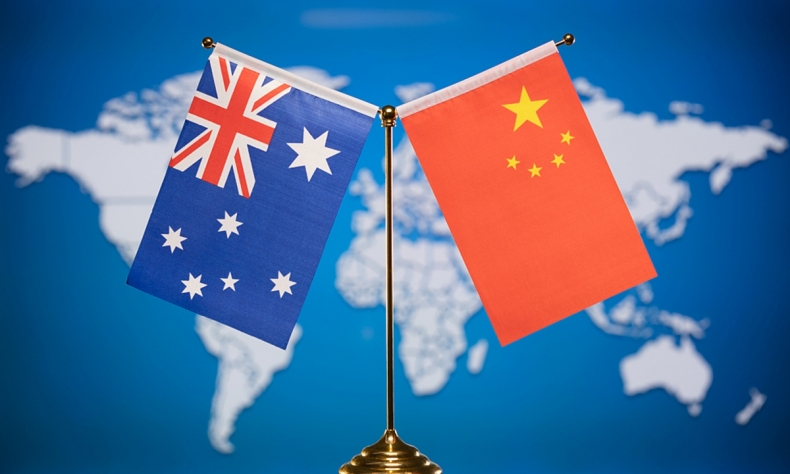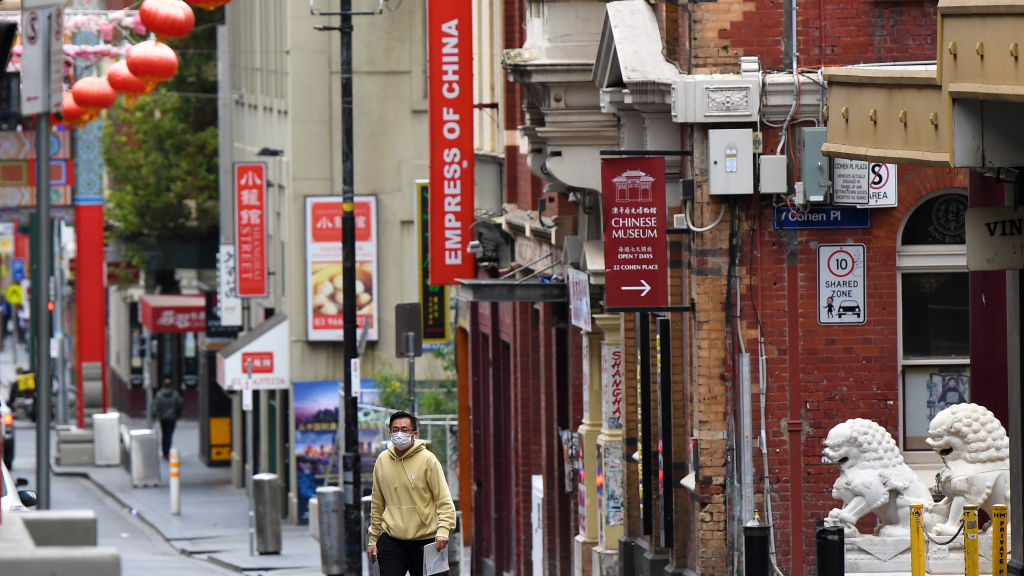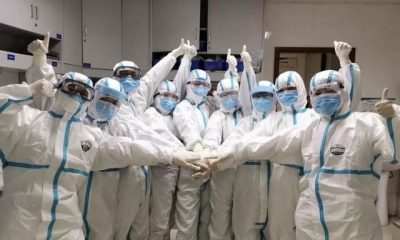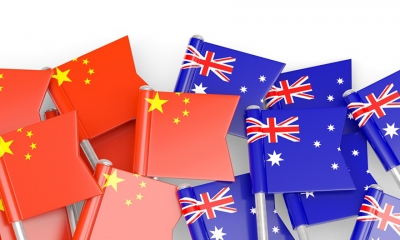An Open Letter for Open Minds Between Australia and China

In this game, Australia is seen as the pawn of a bigger power. The US has been keen to pull Australia away from its economic interdependence with China and the US will certainly gain from the current trade disputes, with its exporters moving in to replace Australian beef, wine and lobster.
Growing up in a multicultural place like Australia, I was lucky to have the best of many worlds. We had Chinese food, Greek cafes and my friends were from all over the world, diversifying the distinctly English influence of the previous generation. I listened with wonder at the international travels of my German grandmother and marvelled at the stories of New York from my aunt, who married an American. I guess I was destined to be a citizen of the world, a world in which one in five people are Chinese. So it disturbs me at a personal level that relations between Australia and China have sunk so quickly in recent times to this level of distrust and confrontation.
It makes no sense at the people to people level. Because of travel, trade and technology, we know each other better than ever before. The links between millions of Chinese and Australians are strong and friendly. So surely it doesn’t have to be this way, with both governments bristling with tension towards each other. It seems we have lost sight of what really matters, the people of both countries, to live at peace, in good health and with secure jobs.
The economic links between Australia and China are not just about trade, but have improved the lives of so many people in both countries. Australian goods, services and education of Chinese students have all contributed to the great transformation of China into a middle-income country and, of course, Australia has also benefited and became wealthy as a result. In the real world, there are so many stories of Australians and Chinese working together for common prosperity.
But there is a bigger geopolitical game going on that is scornful of that real world of ordinary people working together. In this game, Australia is seen as the pawn of a bigger power. The US has been keen to pull Australia away from its economic interdependence with China and the US will certainly gain from the current trade disputes, with its exporters moving in to replace Australian beef, wine and lobster. Perhaps China also thinks it can make an example of Australia, because of the way in which the Australian Government has adopted a political campaign approach against China on various issues for domestic political advantage.
Yet this bodes badly for the future, as it is inevitable that we are moving to a multipolar world in which China will be one of the great powers, and Australia will remain a resource-rich and open country with which China should have normal relations. I believe a strong and confident Australia would be far better positioned as friend to both China and the US, as well as to other countries in the region. Sure, we will have differences of opinion but we need to learn how to live and work together.
So how might we fix this current mess? Well, first we need to want to fix it. That’s called leadership. I have been observing international relations for a long time and there is one thing I know, nothing is certain. Leaders can dig in and make things worse. Or they can step back, re-set and change direction to make things better.

It is not quite as easy as that, of course, because there are some sticking points. Like the distrust our security and intelligence establishments have for each other. That’s ok, it’s what we pay them for, to prepare for worst case scenarios. We should be employing every other resource at our disposal, though, to ensure we don’t end up in those worst-case scenarios. It would be prudent to take a risk management approach rather than a confrontational approach to the matters on which there is distrust.
For example, Australia and China could cooperate to build cyber security rules and standards, with a treaty committing to non-interference, together with verifiable mechanisms for monitoring. It could be a model for the region and the world, when the US has long spurned universal rules in cyber space. A risk management approach, that was blind to the nationality of a tech supplier, would actually be a more robust approach, to protect against all cyber risks in the new inter-connected digital world.
Australia and China could also cooperate in building sustainable infrastructure connectivity in the South Pacific, to help the region address its climate and economic risks, working with Pacific islanders to address their needs, instead of seeing them as pawns in the game of geopolitics. And when it comes to geopolitics, both countries could agree to respect each other’s core interests, consult rather than contest. Such moves would strengthen security, not weaken it.
There is no shortage of common challenges on which we ought to work together rather than apart, from climate change to sustainable agriculture and fisheries. Both Australia and China will benefit from stronger multilateralism, with rules, norms and standards that respect all countries. They should work closely in the World Health Organisation to prevent future pandemics, cooperate in United Nations peace keeping and bolster development through organisations such as the Asian Infrastructure Investment Bank.
And, of course, trade disputes should be settled according to the rules both countries have signed up for under the World Trade Organisation. It would be in the interests of both countries to lobby the incoming Biden administration to stop US undermining of the WTO Appellate Body, so that it can get on with its important work.
It’s difficult to be optimistic at present, when the spotlight is on confrontation rather than the quiet work of cooperation, but times change. After many years of working with China, I have nothing but respect for my Chinese friends and colleagues and I hope they can say the same about the Australians they know. Sometimes, we lose the habit of communicating, but if there is a will, communications can be re-opened at any time. I recently re-engaged with a childhood friend and while our lives have taken different courses, we found a common love of Chinese food. Just as a Chinese banquet is constructed from diverse flavours that complement each other, we are all different, and it is through working together that we find our full potential. My hope is that one day soon, our leaders may reflect on this and find a way forward.
 Facebook
Facebook
 Twitter
Twitter
 Linkedin
Linkedin
 Google +
Google +






